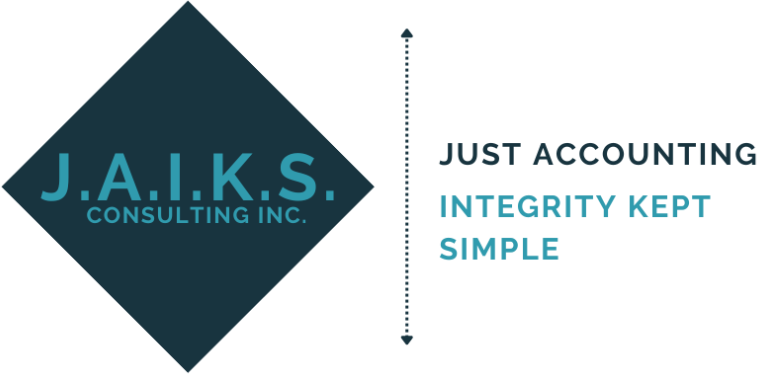J.A.I.K.S. BLOG
Welcome to J.A.I.K.S. Blog, a place where we will provide you with a variety of resources on accounting, taxation and other related subjects suited for both individuals and/or their businesses.
We hope you can find the answers to your questions and/or curiosities, and always know we are here to help if you need more.
Follow us on Facebook or find us on LinkedIn - we are always eager to give you more!
Disclaimer:
The content provided in this blog is for general informational purposes only and is not intended as professional accounting, tax, or financial advice. While efforts are made to ensure the accuracy and timeliness of the content, errors or omissions may occur. The content does not constitute a client-advisor relationship. Readers should consult with a Chartered Professional Accountants or other financial professional for advice tailored to their specific needs. We are not liable for any actions one might take based on the information provided in this blog.
2 minutes reading time
(457 words)
The Balance Sheet for All Businesses
An up-to-date business balance sheet is a critical financial statement that provides a snapshot of a company's financial position at a specific point in time. It lists the company's assets, liabilities, and shareholders' equity. Here are several scenarios where having an up-to-date balance sheet is particularly beneficial:
Balance Sheets are not just for Corporations, but are equally important for Sole Proprietors for the following reasons:
Financial Decision Making
- Investment Decisions - It helps in assessing the company’s current financial health to make informed investment decisions.
- Budgeting and Planning - Provides a basis for budgeting and financial planning by showing available resources and obligations.
Lending and Financing
- Loan Applications - Lenders often require an up-to-date balance sheet to evaluate a company’s ability to repay a loan.
- Creditworthiness - Helps in establishing the company’s creditworthiness to potential lenders or suppliers.
Performance Monitoring
- Financial Health Check - Regular updates allow for continuous monitoring of the company’s financial health and performance.
- Identifying Trends - Helps in identifying financial trends, such as increasing debt or declining asset values.
Investor Relations
- Attracting Investors - Potential investors will review the balance sheet to assess the viability and profitability of the business.
- Transparency - Provides transparency to shareholders about the financial status of the company.
Regulatory Compliance
- Tax Filings - Necessary for preparing accurate tax returns and ensuring compliance with tax regulations.
- Regulatory Reporting - Required for reporting to regulatory bodies, depending on the industry and jurisdiction.
Strategic Planning
- Mergers and Acquisitions - Essential for evaluating the financial status during mergers, acquisitions, or any business restructuring.
- Divestitures - Helps in determining the value of assets to be sold or divested.
Risk Management
- Identifying Financial Risks - Helps in identifying and managing financial risks by highlighting areas of concern, such as high debt levels.
- Liquidity Management - Provides information on current liquidity to ensure the business can meet its short-term obligations.
Operational Efficiency
- Resource Allocation - Assists in effective allocation of resources by identifying underutilized assets or areas requiring investment.
- Cost Management - Helps in identifying and managing costs effectively.
Negotiations
- Vendor Negotiations - Useful in negotiating terms with suppliers and vendors by demonstrating financial stability.
- Customer Contracts - Assists in negotiating terms with major customers, particularly in long-term contracts.
Insurance and Legal Purposes
- Insurance Coverage - Necessary for obtaining adequate insurance coverage based on the value of assets.
- Legal Requirements - May be required for various legal proceedings, including bankruptcy filings or settlements.
An up-to-date balance sheet provides a comprehensive view of the company’s financial position, facilitating better decision-making, planning, and management across various aspects of the business.
To make sure that your balance sheet is up to date, and that you understand all of the important points, contact our office for a full review.
Stay Informed
When you subscribe to the blog, we will send you an e-mail when there are new updates on the site so you wouldn't miss them.


Comments